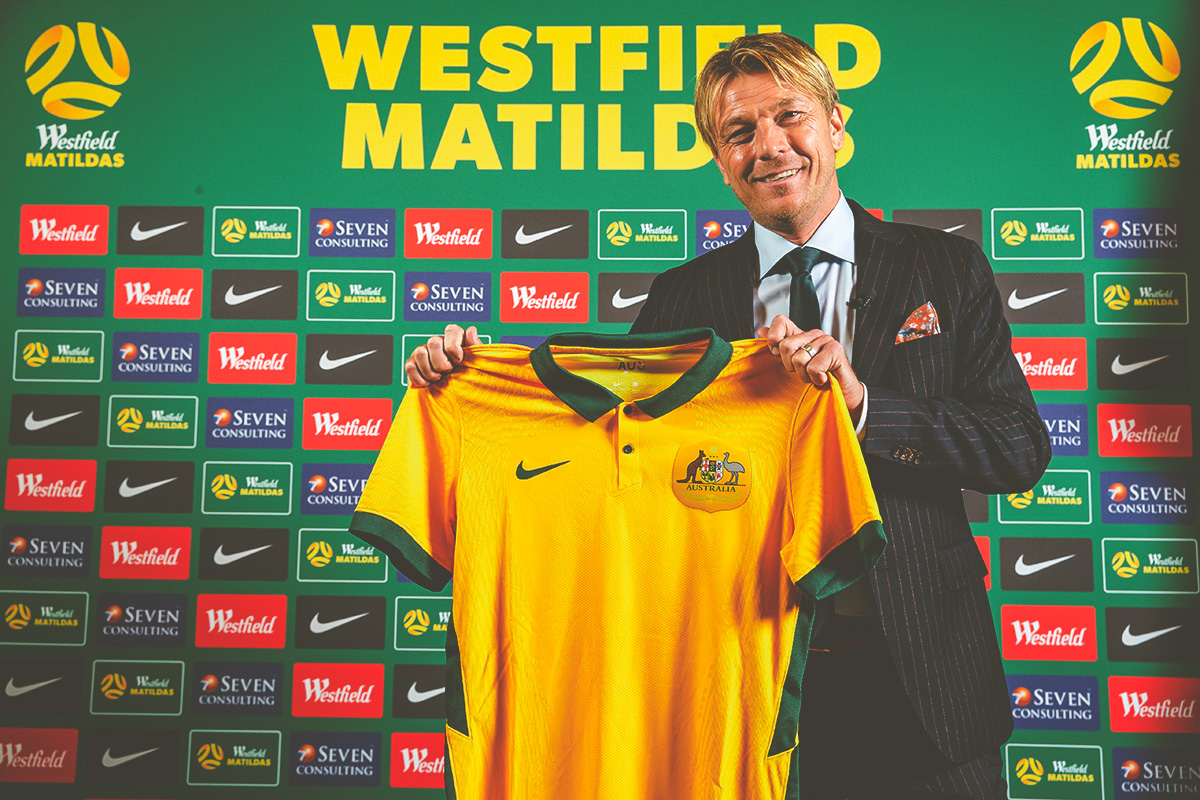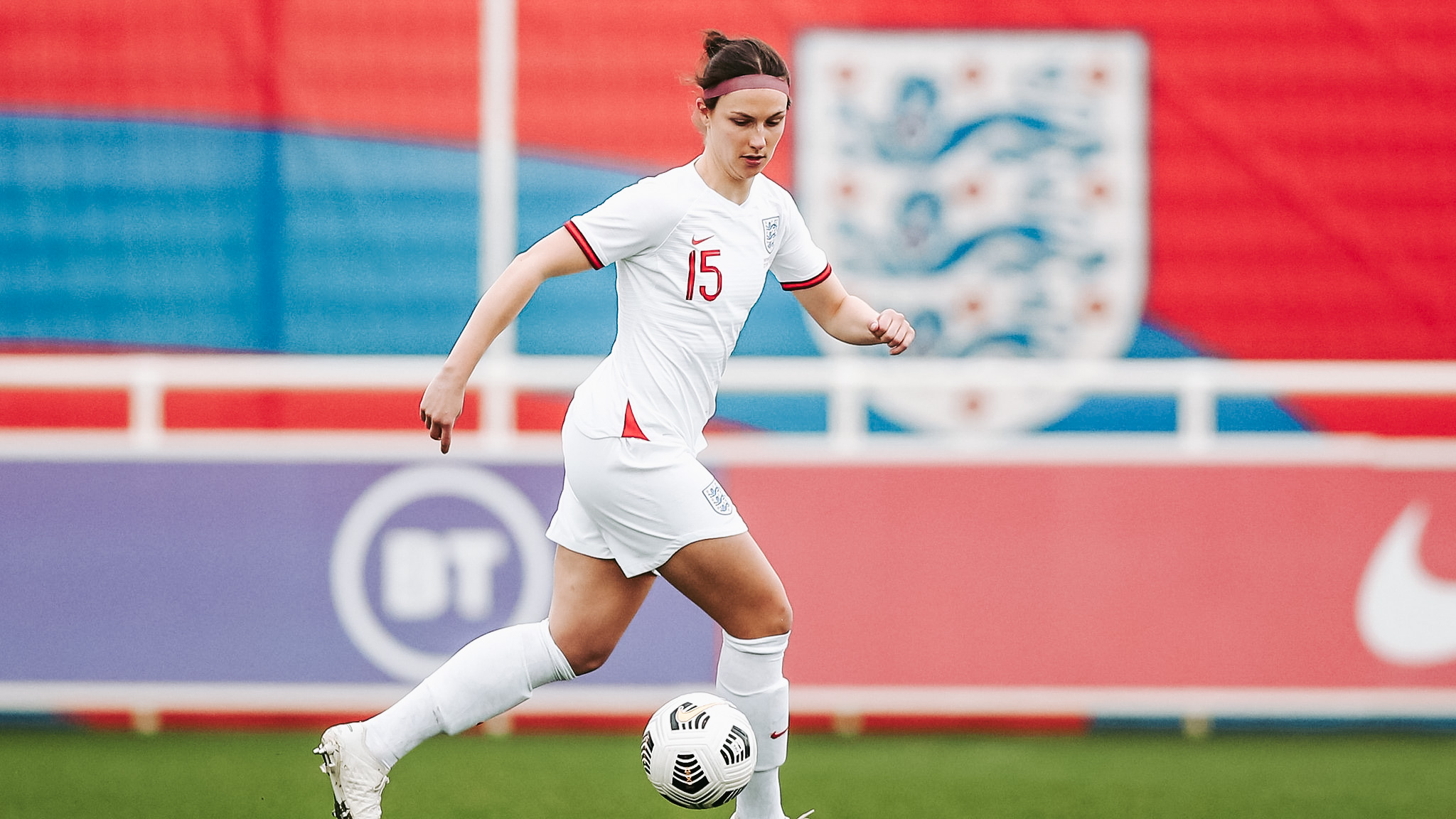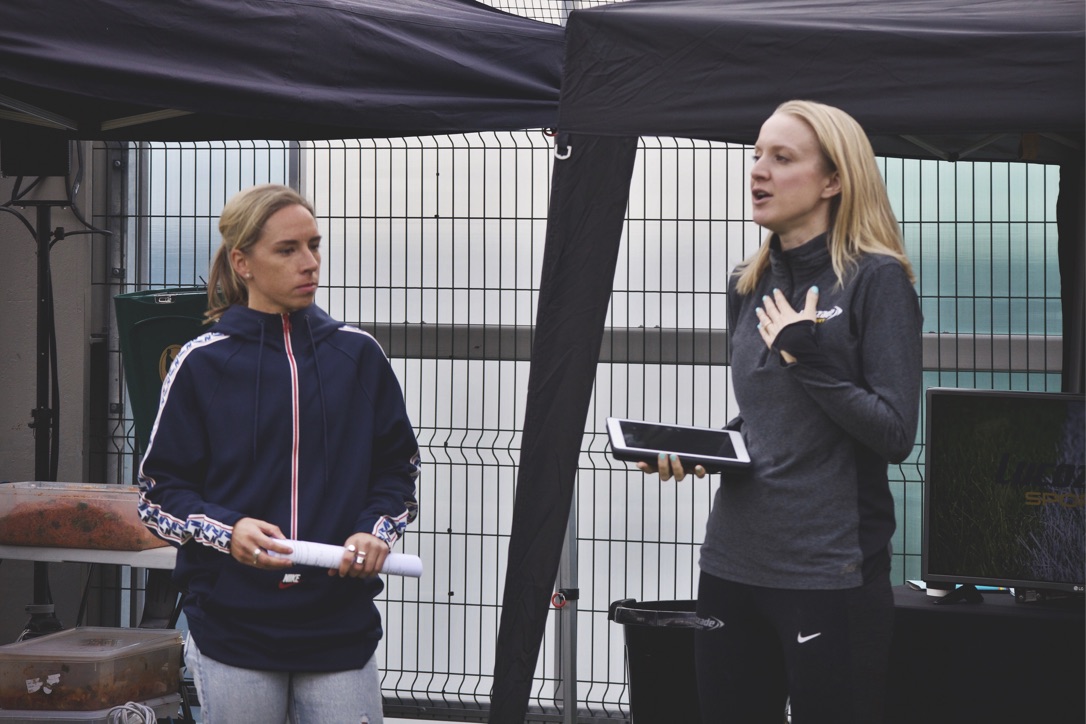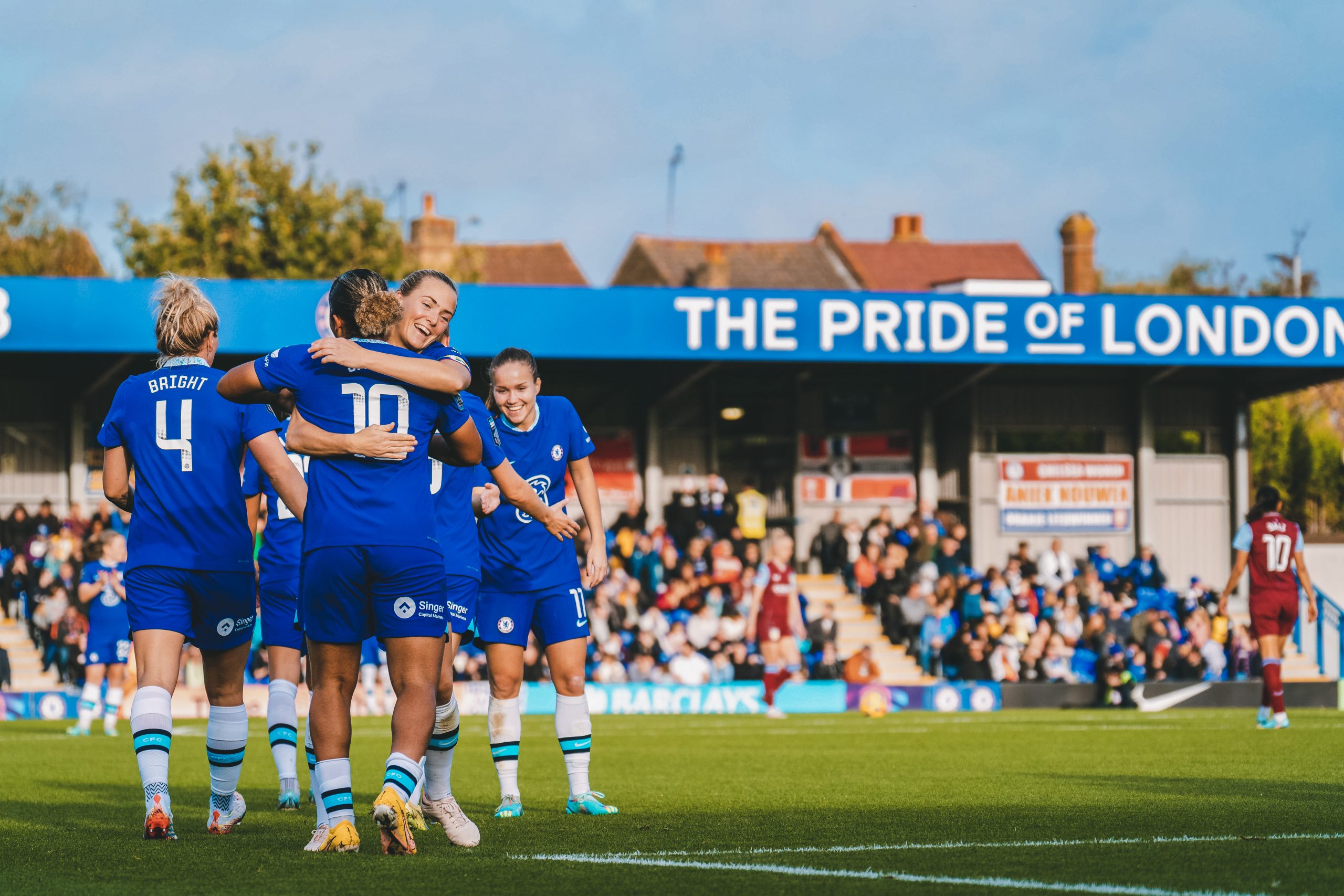Ben Gilby recently participated in a Zoom conference with Tony Gustavsson the new head coach of the Westfield Matildas, Australia’s national women’s team who was part of the United States’ coaching squad at the past two World Cups. It was a fascinating insight into his beliefs and aims.
Spending three quarters of an hour in the company of Tony Gustavsson emphasises the fact that he is far more than just a hugely successful sports coach. He is a highly articulate and deeply inspirational human being with a clear excitement and passion for his new job as head coach of The Matildas.
He speaks about developing athletes as people and the importance of the human touch rather than just relying on the computer data analysis which is ever prevalent these days. As Tony himself said at the start of the Zoom conference, “My passion is helping people reach their potential.”
Gustavsson revealed how his entry into the big time came about: “It was an unexpected email from my fellow Swede Pia Sundhage, then in charge of the US National Women’s Team (USNWT) just before the 2012 Olympic Games in London which simply said: ‘Hey Tony! I need an assistant coach. Do you want to win an Olympic Gold Medal?’
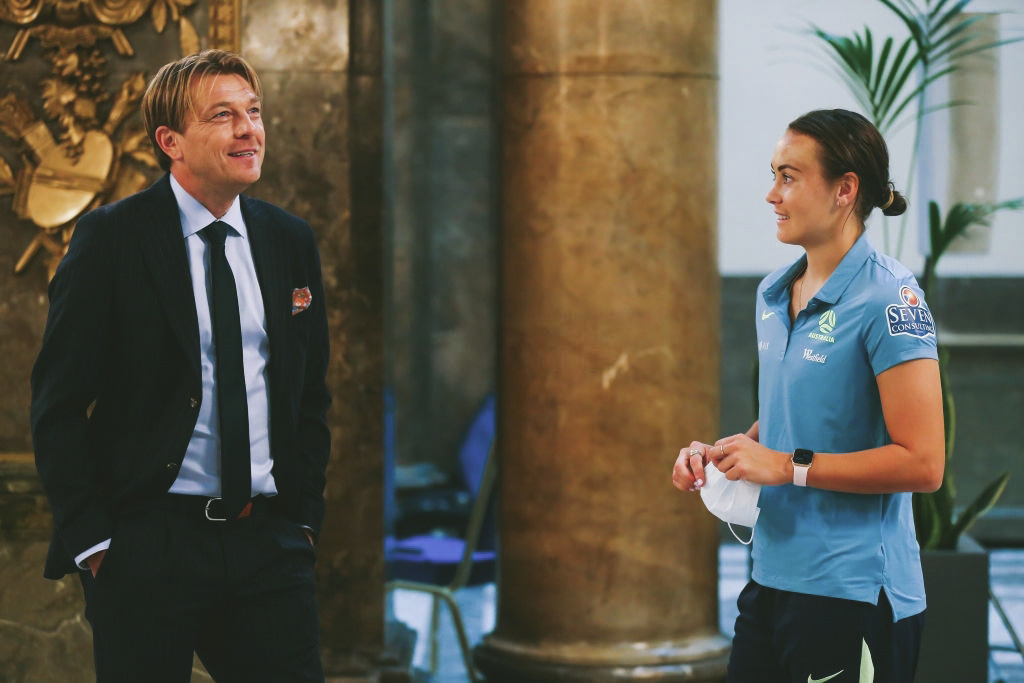
The new Matildas head coach explained how he has been greatly influenced by strong women role models in his life which is at the heart of his desire to grow women’s football.
“My Mum’s Mum emigrated to the USA at the age of nineteen, and my Dad’s Mum left Stockholm for love and moved to the far north of Sweden in the woods! My Mum is a PE teacher and one of the best role models you can have. She has taught at the same school for forty-two years. My partner and daughter are also so strong. It makes me passionate and if I can help to give a platform for women – great. But this is not about Tony. It’s bigger than that.”
He was quick to recognise that, at present people in Australia know far more about their nation’s women’s footballers than he does despite revealing that he spent “almost twenty hours last week meeting Matildas squad members over Zoom”.
We asked Gustavsson about his priorities for developing the pathway of new young players into the senior Matildas team after several years of the age group Australian girls and women’s sides arguably underperforming in international competition: “We need to coach the coaches to educate players into making the best choices. It’s also hugely important to have more international games and camps. To be honest, these players need more players at club level too – it’s all about game minutes at the toughest level. There will be weekly Australian women’s player pathway meeting to help the pathway and development.”
The Swede also made another important observation: “Too many Matildas stop playing international football too early. I want to extend these players’ careers. Players can still play really well at 35 or 40.” Two players that fall into this category, although not mentioned, pop into the mind are Michelle Heyman at 32 and Lisa De Vanna at 36 who are still in top form in the W League this season.
He also made a brief aside about the debate as to whether Australia should wear green or gold shorts. “Ah! The players all say they want green shorts. If we have to wear yellow shorts sometimes I will tell them to make lots of slide tackles so the yellow shorts will go green from the grass!”
We then discussed how Gustavsson sees the gap between Australia and the top women’s sides in the world at present: “People say we can’t compete with the US player pool. I know that when we step on the pitch we can beat them right now. But long term we must invest in order to compete consistently. Things like game management – these are the moments that win and lose games. I’ve won and lost big games – UEFA Women’s Champions League Finals, World Cup Finals. I have some insight.”
“It’s about not conceding unnecessary fouls and unnecessary times of the game. We will face these countries in the later stages of tournaments. There it will be about small margins – physical and mental strength and the need to make sure we peak after four or five weeks in camp together.”
“The thing is we need to have twenty-three players, not eleven. The starting eleven in a Quarter-Final or Semi-Final will not be the same as the starting eleven from the first group game.”
Gustavsson then spoke about motivating and aiding young players: “You need to always remember what made you fall in love with the game. It will be tough, there won’t be a red carpet all the time. You need to try and take the burden off of your shoulders by having good support networks. You should love yourself as well the game. You need to have the passion of getting one day better, not one day older.”
“I feel that I have to make sure that I am passionate about getting better at my job too. If I’m not passionate about getting better, how can I ask my players to get better? You know, sometimes you get blinded by winning. Winning often can come at the expense of getting better. It is all about what you do when no-one is watching you.”
“Also, just think of the number of times the first question you ask after a match is ‘What was the result?’ Instead, we should ask ‘What did you learn from the game?’ “
In order to ensure his teams get consistently better, Gustavsson spoke about how he tries to split football into four different games: “You have to be the best technical team, win the tactical battle – what I call ‘The green field of chess’, have the best endurance and the strongest mental game. All of these are the keys.”
A strong mental approach is something that he himself uses in preparing for games – as Gustavsson revealed what he gets up to in the dressing room on his own whilst the players are warming up on the pitch: “I do my own warm up. I lie down on the bench in the room and play the game in my head. I paint different scenarios on what might happen. I also do some mindfulness reading.”
The Swede admits that making mistakes and losing is part of getting better: “Look, for me, failure is the first step to success. For me we never lose. We either win or we learn.”
In terms of learning, Gustavsson has an interesting philosophy about the use of data analysis, something which has a growing role in the game: “At Hammarby I worked with a top data analyst and he had lots of key performance indicators for the players. But I trained as a Maths and PE teacher, so I like to remind people that we work with humans. There is not a magic formula that can tell me which human I should pick to play football in what position on the field. Don’t get me wrong, we can lose important information if we don’t use data at all, but we are humans first. We have eyes to analyse with!”
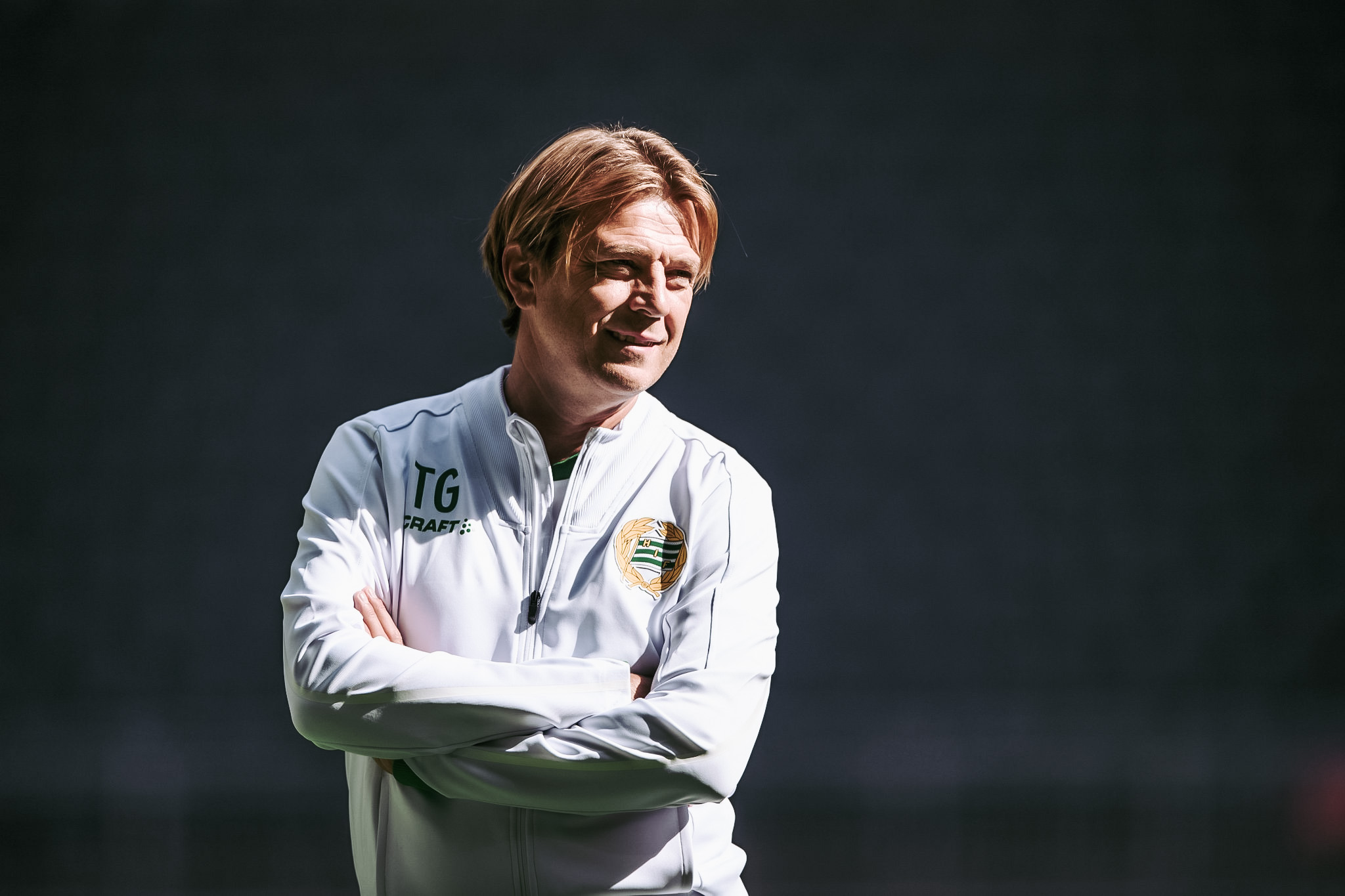
Tony’s belief in transforming players as humans comes from his time in the USA: “A brain researcher once said that a star is distinguished from an average person because of a drive to achieve more and to put the work in. I believe that you have one important skill that no-one else has. It’s being you. Be proud of you. Showcase you – not someone else!”
“We should talk about five success criteria – the five c’s: competence, confidence, connections (with team mates and coaches), care and creativity. As well I talk about an approach called ‘STAR’ – See, Think, Act, Repeat.”
There is no doubt that the Matildas have has the players to potentially win a World Cup for a few years now. The discussion with Tony Gustavsson reveals that they now have a coach to potentially take them to a World Cup win too. His philosophy, motivation and sheer enthusiasm for what he does and for his four years ahead with the Matildas is obvious.





